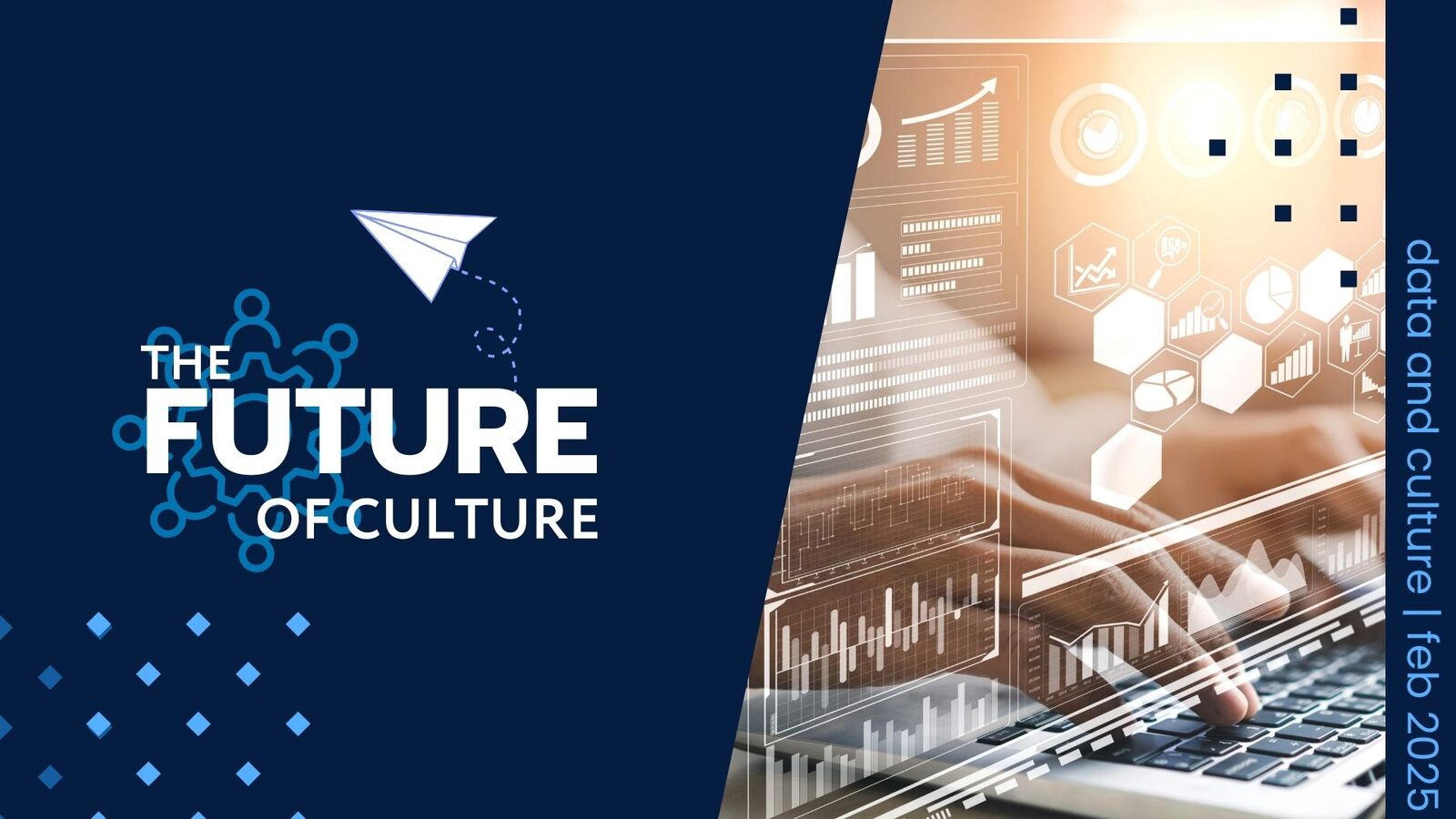
The cultural sector is at a turning point. As organizations face shifting audience behaviors, increased pressure for accountability, and the need to advocate for long-term sustainability, data has emerged as one of the most powerful tools at our disposal.
This month, The Future of Culture explores how cultural organizations are embracing data literacy, digital transformation, and sector-wide collaboration to shape a more resilient future. From leveraging statistics to tell compelling stories to breaking down silos through shared data, this edition focuses on the ways in which cultural data is no longer just a resource—it’s a necessity for survival and growth.
Our contributors offer insightful perspectives on how the cultural sector is evolving through data-driven strategies. Colleen Dilenschneider from IMPACT Experience unpacks the core competencies needed for organizations to successfully integrate data into decision-making (Three Cognitive Biases That Make It Hard To Accept Data). Jenny Spurr of Perch Communications explores the power of data-driven storytelling, offering practical guidance on how to turn metrics into meaningful narratives (Stories and Statistics). Robin Sokoloski from Mass Culture provides a broader lens on how cultural data is shaping advocacy and policy, making the case for data as a central pillar of cultural sustainability (Why Data Now?).
This edition also features an in-depth interview with Ryan Hunt, Executive Director of the BC Museums Association, on the groundbreaking work of the BC Coalition of Arts, Culture, and Heritage. The coalition has united over 30 cultural organizations across BC to amalgamate data, create a unified voice, and advocate for greater sector-wide impact. Ryan shares the coalition’s origin story, the challenges of bringing together a fragmented sector, and the transformative role of shared data in shaping cultural policy. His insights reinforce a critical theme for the sector at large: data is not just about measurement—it’s about mobilization.
Looking ahead, we’ll also be exploring how national institutions like the Canada Council for the Arts are advancing data initiatives to support cultural organizations across Canada. Stay tuned for more on how cultural data is shaping policy and practice at the national level.
As we continue to navigate the digital age, cultural organizations must move beyond seeing data as just a reporting requirement—instead, it should be embraced as a strategic asset. Whether it’s strengthening advocacy, refining audience engagement, or ensuring the long-term sustainability of arts and heritage institutions, data is the key to unlocking a stronger, more connected cultural future.
This month's articles by Cultural Futures:
- Data As Culture's Next Frontier
- Digital Skills and Data Literacy: The Future of Cultural Work
- Shaping Culture with Data: An Interview with Ryan Hunt on the BC Coalition of Arts, Culture and Heritage
- Keys to Being A Data-Driven Organization, Coleen Dilenschneider, IMPACT Experience
- Stories and Statistics: How To use Data-Driven Storytelling by Jenny Spurr, Perch Communications
- Why Data Now: The Growing Role of Data in the Arts and Culture Sector by Robin, Mass Culture
Accessing The Future of Culture content
- Members of the Centre for Cultural Futures Canada have full access to our Future of Culture library of articles, including exclusive members only content and our archives of past articles. Please become a member today to access the full library of members-only content.
- Subscribers to the Future of Culture newsletter on LinkedIn have access to the current month's content only. To stay current by subscribing today.

